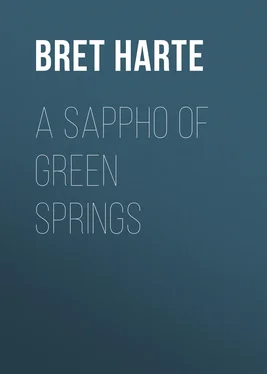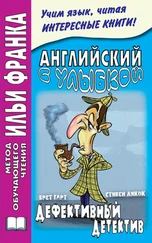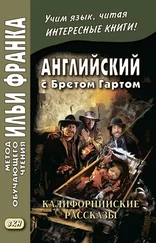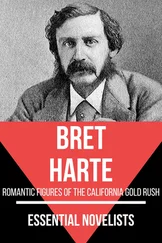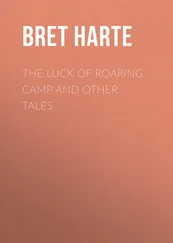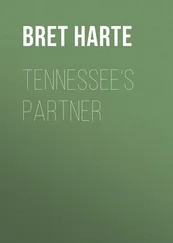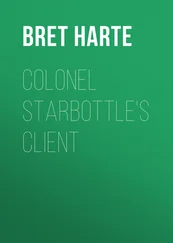Bret Harte - A Sappho of Green Springs
Здесь есть возможность читать онлайн «Bret Harte - A Sappho of Green Springs» — ознакомительный отрывок электронной книги совершенно бесплатно, а после прочтения отрывка купить полную версию. В некоторых случаях можно слушать аудио, скачать через торрент в формате fb2 и присутствует краткое содержание. Жанр: foreign_sf, literature_19, foreign_antique, foreign_prose, на английском языке. Описание произведения, (предисловие) а так же отзывы посетителей доступны на портале библиотеки ЛибКат.
- Название:A Sappho of Green Springs
- Автор:
- Жанр:
- Год:неизвестен
- ISBN:нет данных
- Рейтинг книги:4 / 5. Голосов: 1
-
Избранное:Добавить в избранное
- Отзывы:
-
Ваша оценка:
- 80
- 1
- 2
- 3
- 4
- 5
A Sappho of Green Springs: краткое содержание, описание и аннотация
Предлагаем к чтению аннотацию, описание, краткое содержание или предисловие (зависит от того, что написал сам автор книги «A Sappho of Green Springs»). Если вы не нашли необходимую информацию о книге — напишите в комментариях, мы постараемся отыскать её.
A Sappho of Green Springs — читать онлайн ознакомительный отрывок
Ниже представлен текст книги, разбитый по страницам. Система сохранения места последней прочитанной страницы, позволяет с удобством читать онлайн бесплатно книгу «A Sappho of Green Springs», без необходимости каждый раз заново искать на чём Вы остановились. Поставьте закладку, и сможете в любой момент перейти на страницу, на которой закончили чтение.
Интервал:
Закладка:
“But you surely don’t expect you will ever see Bob, again!” said the editor, impatiently. “You have trusted him with enough to start him for the Sandwich Islands, to say nothing of the ruinous precedent you have established in his mind of the value of poetry. I am surprised that a man of your knowledge of the world would have faith in that imp the second time.”
“My knowledge of the world,” returned Mr. Hamlin, sententiously, “tells me that’s the only way you can trust anybody. ONCE doesn’t make a habit, nor show a character. I could see by his bungling that he had never tried this on before. Just now the temptation to wipe out his punishment by doing the square thing, and coming back a sort of hero, is stronger than any other. ‘Tisn’t everybody that gets that chance,” he added, with an odd laugh.
Nevertheless, three hours passed without bringing Bob. The two men had gone to the billiard-room, when a waiter brought a note, which he handed to Mr. Hamlin with some apologetic hesitation. It bore no superscription, but had been brought by a boy who described Mr. Hamlin perfectly, and requested that the note should be handed to him with the remark that “Bob had come back.”
“And is he there now?” asked Mr. Hamlin, holding the letter unopened in his hand.
“No, sir; he run right off.”
The editor laughed, but Mr. Hamlin, having perused the note, put away his cue. “Come into my room,” he said.
The editor followed, and Mr. Hamlin laid the note before him on the table. “Bob’s all right,” he said, “for I’ll bet a thousand dollars that note is genuine.”
It was delicately written, in a cultivated feminine hand, utterly unlike the scrawl that had first excited the editor’s curiosity, and ran as follows:—
He who brought me the bounty of your friend—for I cannot call a recompense so far above my deserts by any other name—gives me also to understand that you wished for an interview. I cannot believe that this is mere idle curiosity, or that you have any motive that is not kindly and honorable, but I feel that I must beg and pray you not to seek to remove the veil behind which I have chosen to hide myself and my poor efforts from identification. I THINK I know you—I KNOW I know myself—well enough to believe it would give neither of us any happiness. You will say to your generous friend that he has already given the Unknown more comfort and hope than could come from any personal compliment or publicity, and you will yourself believe that you have all unconsciously brightened a sad woman’s fancy with a Dream and a Vision that before today had been unknown to WHITE VIOLET.
“Have you read it?” asked Mr. Hamlin.
“Yes.”
“Then you don’t want to see it any more, or even remember you ever saw it,” said Mr. Hamlin, carefully tearing the note into small pieces and letting them drift from the windows like blown blossoms.
“But, I say, Jack! look here; I don’t understand! You say you have already seen this woman, and yet”—
“I HAVEN’T seen her,” said Jack, composedly, turning from the window.
“What do you mean?”
“I mean that you and I, Fred, are going to drop this fooling right here and leave this place for Frisco by first stage to-morrow, and—that I owe you that dinner.”
CHAPTER IV
When the stage for San Francisco rolled away the next morning with Mr. Hamlin and the editor, the latter might have recognized in the occupant of a dust-covered buggy that was coming leisurely towards them the tall figure, long beard, and straight duster of his late visitor, Mr. James Bowers. For Mr. Bowers was on the same quest that the others had just abandoned. Like Mr. Hamlin, he had been left to his own resources, but Mr. Bowers’s resources were a life-long experience and technical skill; he too had noted the topographical indications of the poem, and his knowledge of the sylva of Upper California pointed as unerringly as Mr. Hamlin’s luck to the cryptogamous haunts of the Summit. Such abnormal growths were indicative of certain localities only, but, as they were not remunerative from a pecuniary point of view, were to be avoided by the sagacious woodman. It was clear, therefore, that Mr. Bowers’s visit to Green Springs was not professional, and that he did not even figuratively accept the omen.
He baited and rested his horse at the hotel, where his bucolic exterior, however, did not elicit that attention which had been accorded to Mr. Hamlin’s charming insolence or the editor’s cultivated manner. But he glanced over a township map on the walls of the reading-room, and took note of the names of the owners of different lots, farms, and ranches, passing that of Delatour with the others. Then he drove leisurely in the direction of the woods, and, reaching them, tied his horse to a young sapling in the shade, and entered their domain with a shambling but familiar woodman’s step.
It is not the purpose of this brief chronicle to follow Mr. Bowers in his professional diagnosis of the locality. He recognized Nature in one of her moods of wasteful extravagance,—a waste that his experienced eye could tell was also sapping the vitality of those outwardly robust shafts that rose around him. He knew, without testing them, that half of these fair-seeming columns were hollow and rotten at the core; he could detect the chill odor of decay through the hot balsamic spices stirred by the wind that streamed through their long aisles,—like incense mingling with the exhalations of a crypt. He stopped now and then to part the heavy fronds down to their roots in the dank moss, seeing again, as he had told the editor, the weird SECOND twilight through their miniature stems, and the microcosm of life that filled it. But, even while paying this tribute to the accuracy of the unknown poetess, he was, like his predecessor, haunted more strongly by the atmosphere and melody of her verse. Its spell was upon him, too. Unlike Mr. Hamlin, he did not sing. He only halted once or twice, silently combing his straight narrow beard with his three fingers, until the action seemed to draw down the lines of his face into limitless dejection, and an inscrutable melancholy filled his small gray eyes. The few birds which had hailed Mr. Hamlin as their successful rival fled away before the grotesque and angular half-length of Mr. Bowers, as if the wind had blown in a scarecrow from the distant farms.
Suddenly he observed the figure of a woman, with her back towards him, leaning motionless against a tree, and apparently gazing intently in the direction of Green Springs. He had approached so near to her that it was singular she had not heard him. Mr. Bowers was a bashful man in the presence of the other sex. He felt exceedingly embarrassed; if he could have gone away without attracting her attention he would have done so. Neither could he remain silent, a tacit spy of her meditation. He had recourse to a polite but singularly artificial cough.
To his surprise, she gave a faint cry, turned quickly towards him, and then shrank back and lapsed quite helpless against the tree. Her evident distress overcame his bashfulness. He ran towards her.
“I’m sorry I frighted ye, ma’am, but I was afraid I might skeer ye more if I lay low, and said nothin’.”
Even then, if she had been some fair young country girl, he would have relapsed after this speech into his former bashfulness. But the face and figure she turned towards him were neither young nor fair: a woman past forty, with gray threads and splashes in her brushed-back hair, which was turned over her ears in two curls like frayed strands of rope. Her forehead was rather high than broad, her nose large but well-shaped, and her eyes full but so singularly light in color as to seem almost sightless. The short upper lip of her large mouth displayed her teeth in an habitual smile, which was in turn so flatly contradicted by every other line of her careworn face that it seemed gratuitously artificial. Her figure was hidden by a shapeless garment that partook equally of the shawl, cloak, and wrapper.
Читать дальшеИнтервал:
Закладка:
Похожие книги на «A Sappho of Green Springs»
Представляем Вашему вниманию похожие книги на «A Sappho of Green Springs» списком для выбора. Мы отобрали схожую по названию и смыслу литературу в надежде предоставить читателям больше вариантов отыскать новые, интересные, ещё непрочитанные произведения.
Обсуждение, отзывы о книге «A Sappho of Green Springs» и просто собственные мнения читателей. Оставьте ваши комментарии, напишите, что Вы думаете о произведении, его смысле или главных героях. Укажите что конкретно понравилось, а что нет, и почему Вы так считаете.
